2020 Reading List
January 01 2020This is the reading list for 2020.
- Anna Karenina by Leo Tolstoy
- Where do you think we are? by Shea Serrano
- The Ride of a Lifetime by Robert Iger
- Absolutely on Music: Conversations with Seiji Ozawa by Haruki Murakami
- Saga by Brian K. Vaughan and Fiona Staples
- Playing for Keeps by David Halberstam
- Howl's Moving Castle by Diana Wynne Jones
- Super Pumped: The Battle for Uber by Mike Isaac
- Why We're Polarized by Ezra Klein
- Chasing Chopin by Annik LaFarge
- Ahsoka by E.K. Johnston
- Tall Tales by Terry Pluto
- The Storm Before the Storm by Mike Duncan
- Pistol: The Life of Pete Maravich by Mark Kriegel
- The Trial by Franz Kafka
- Erik Satie (Critical Lives) by Mary Davis
- Y: The Last Man by Brian K. Vaughan and Pia Guerra
Anna Karenina by Leo Tolstoy
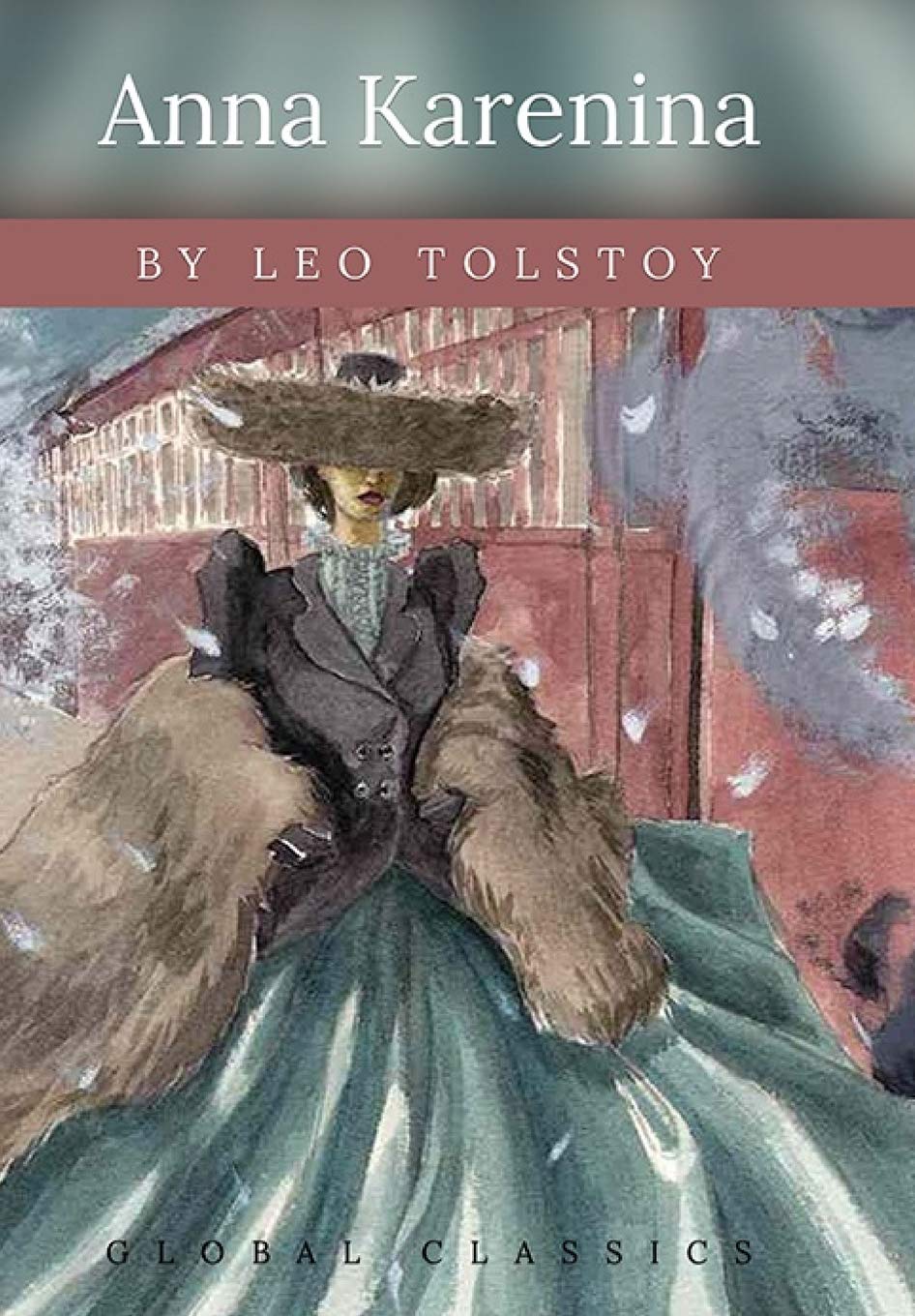
I had always been aware of this novel of course. It’s one of the best known in literature. I’m not sure what made me really want to jump in and read it. I wanted to read a period piece with some drama. Anna Karenina fulfilled that desire and probably overfilled it. It took me almost four months to finish reading the book.
The book is so rich in texture and details. It’s remarkable how much insight into people’s thinking and emotions that Tolstoy has. He is comfortable calling out when something a character says doesn’t make sense, but still they say it. Perhaps I’m naive, but I really didn’t see Anna’s fate coming (I thought she would find some way to live alone and in shame for the rest of her life). I’m also surprised that more didn’t come from the Anna/Levin relationship.
This novel is truly a masterpiece.
Where do you think we are? by Shea Serrano
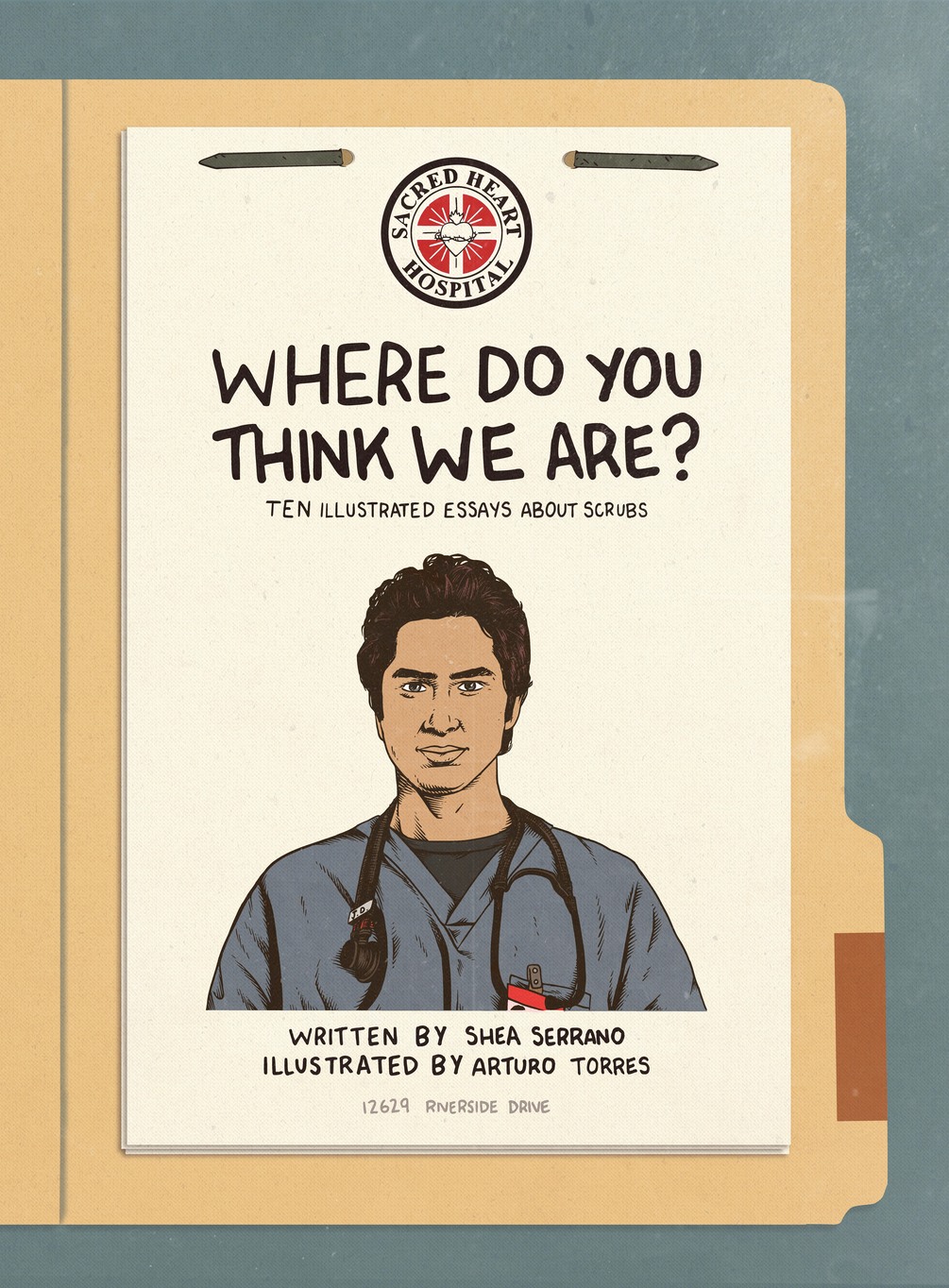
I devoured this collection of 10 essays about Scrubs in one morning. It follows the same basic template as Serrano’s other books, including a very similar e-book about The Office TV show that I read last year. Serrano has a very casual (but engaging) storytelling style. He weaves in multiple different layers of pop culture and sports and uses it to tell the stories. He can be poignant when needed (the story about his grandmother on her deathbed…). More than anything, this celebrates a show that I have been watching for more than half my life. It is one that I come back to every few years. Serrano really highlights what makes the show special.
The Ride of a Lifetime by Robert Iger
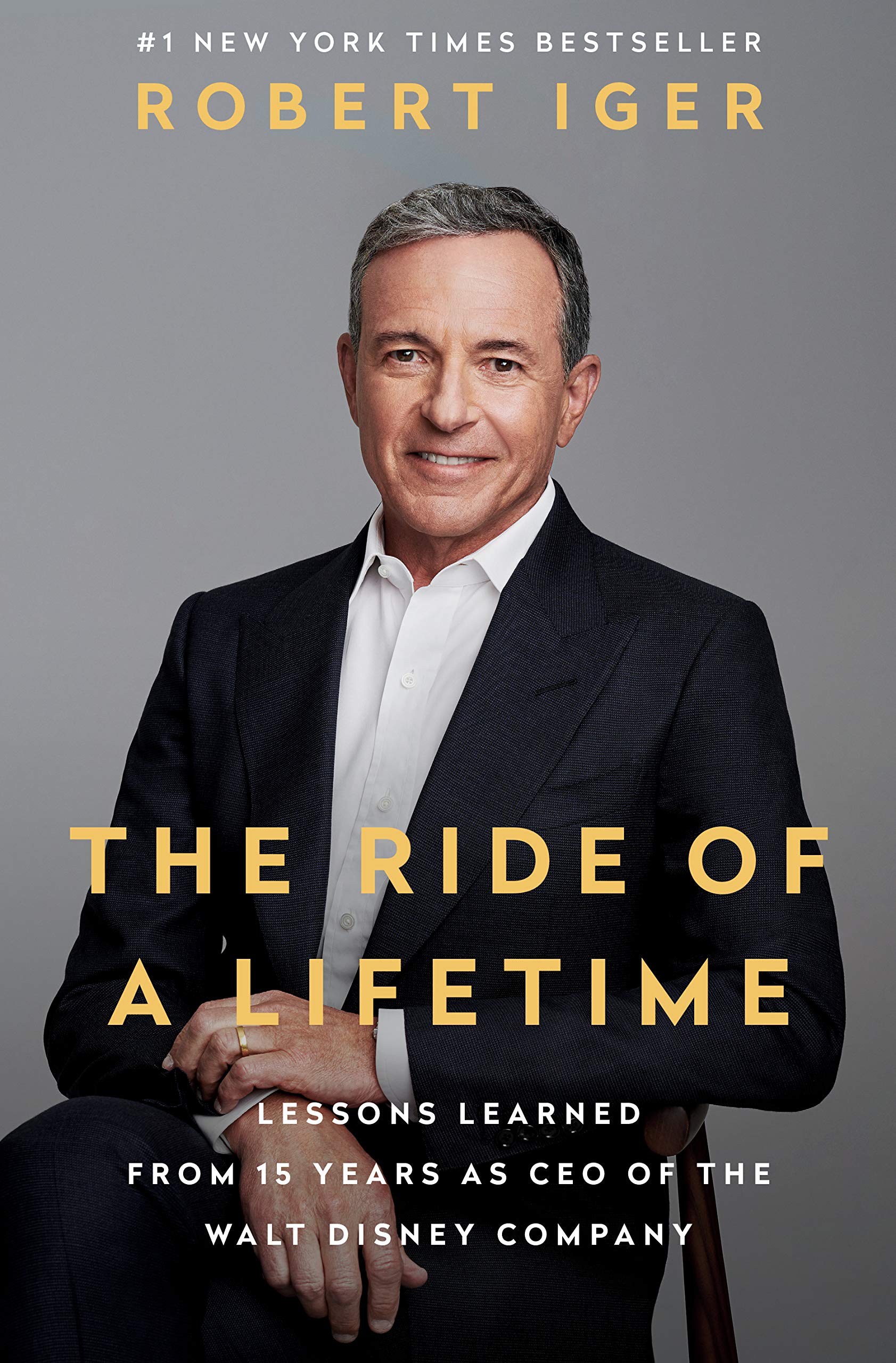
This was a breezy book and one that shot to the top of my list after Robert Iger recently stepped down as CEO of Disney. I have had an admiration for Disney as a company for most of my life. That really concentrated in the last few years as my kids have reached Disneyland age (we have been to Disneyland or Disney World 4 times in the last 5 years). There is a wonderful attention to detail and generally high bar for customer experience.
Robert Iger has been was in charge of Disney for 15 years. The book is mostly a memoir with some business lessons thrown in. There’s nothing revolutionary in here. Iger had the combination of both being successful early in his career and getting lucky with opportunities opening up at the right times. He’s clearly a very talented businessman, with a high level of integrity and a good sense of timing.
Much of the latter half of the book is about Iger’s pursuit of four major acquisitions (Pixar, Marvel, LucasFilm, and Fox). All of this seems obvious in hindsight, but it’s remarkable to look back and see that Pixar ($7B), Marvel ($4B), and LucasFilm ($4B) were bought for a total that is less than some young tech companies today (before the recent crash, a company like Slack had a higher market cap than the combined value of the three acquisitions). These acquisitions will probably be tought in MBA classes for years to come as the ultimate examples of corporate synergies and the whole being greater than sum of the parts.
Absolutely on Music: Conversations with Seiji Ozawa by Haruki Murakami
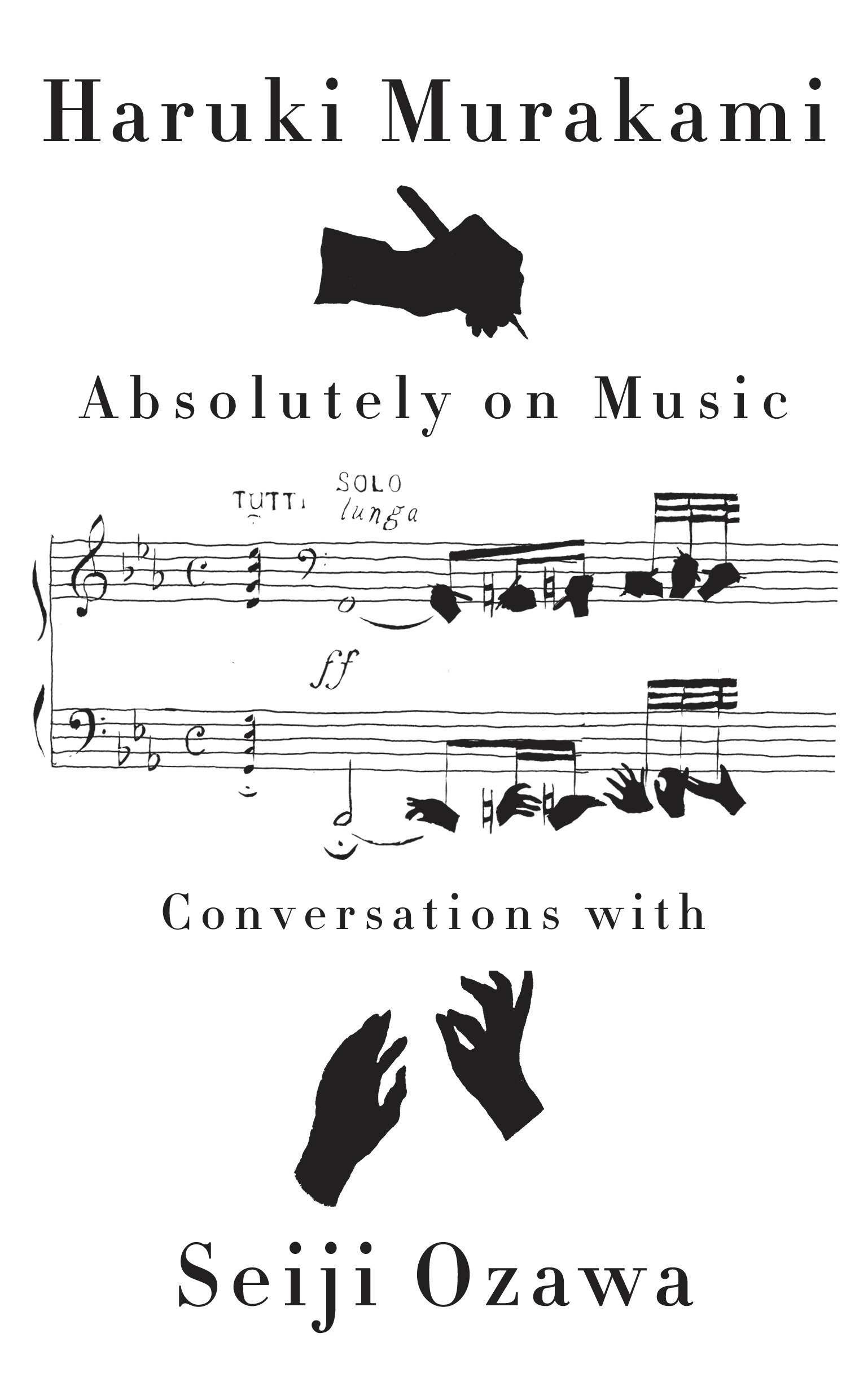
My thoughts on this book went long, so I captured them in a separate post.
Saga Volumes 1-9 by Brian K. Vaughan and Fiona Staples
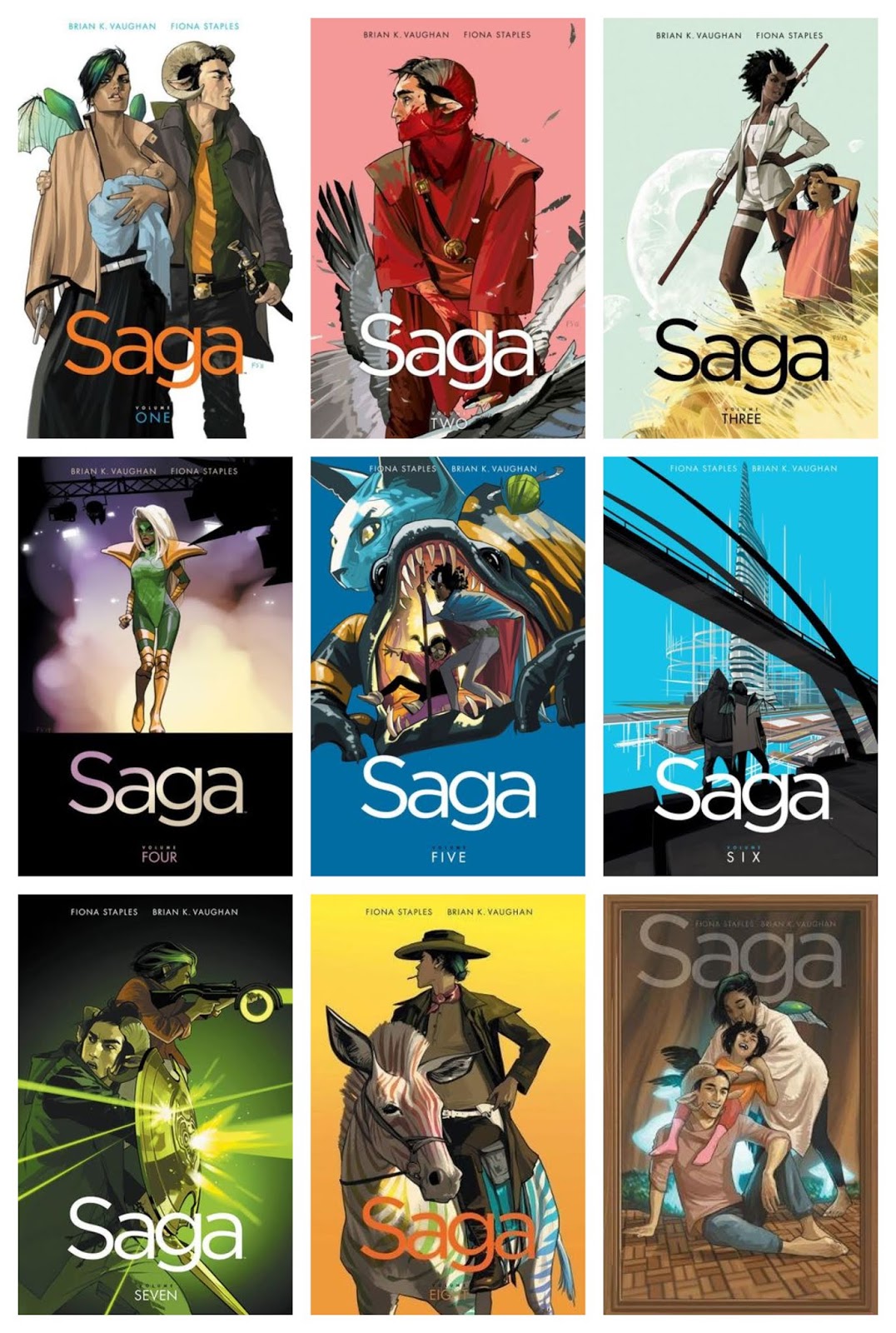
Wow. I have never been a comic book guy. Growing up, lots of my friends would buy and collect comic books, but I never got into it for whatever reason. I did enjoy watching some of the cartoons (I particularly liked the X-Men TV series), but I never actually got into the superhero stuff. Comics like Calvin and Hobbes were a different story. I read those vociferously and still do today. Saga makes me question everything about this: should I have been reading comic books this whole time?
I discovered Saga through the Binge Mode podcast. They talked about this series with such conviction and passion, that I figured I had to check it out. I ended up reading the entire series to date (9 volumes) in 2 days. I literally couldn’t put it down. The combination of a good story, very compelling characters, and beautiful hand-drawn art and landscapes in a fantasy world was just wonderfully enrapturing.
The story itself is not entirely compelling. The Wikipedia entry for Saga notes that it is inspired by Star Wars and also has some elements of Game of Thrones. I think that’s not entirely accurate. Thematically, Saga is way different from Star Wars. As far as I can tell, the only thing those two share is seemingly endless world building, with many different planets, species, cultures, and technology. But this is loosely true for all science fiction/fantasy, so I’m not sure why the direct comparison to Star Wars is necessary.
The Game of Thrones element is more readily apparent. Saga’s world is more nuanced and driven by a ton of politics. There is no clean Jedi light side vs. Sith dark side fight. Instead, there is a ton more gray. As an example, The Will is a bounty hunter character who shamelessly murders people for hire but goes out of his way to save a six-year old girl sold as a sex slave (it’s basically an earlier and more salacious version of the Mandalorian plot). Also, there is a lot more explict depiction of sex and other adult material.
Saga is halfway through, and the authors are taking a break before starting the second half. I cannot wait to read the conclusion of this series.
Playing for Keeps by David Halberstam
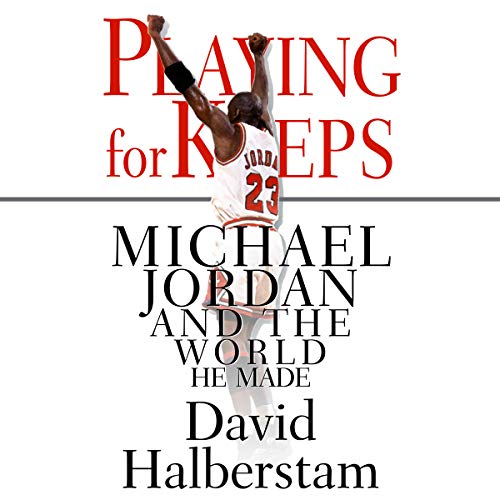
I had always wanted to read this book but it was never a priority until now. Long ago, I read the brilliant book Breaks of the Game, also by David Halberstam, which followed the Bill Walton-lead Trailblazers team and focused specifically on how the team grew apart after winning the NBA championship. Halberstam is an amazing writer, with a ton of “show”, very little “tell”, and a simple writing style that is easy to read. Reading a Halberstam book is like reading a long Zach Lowe feature or Sports Illustrated feature, except the feature in question takes 5-6 hours to read.
The other reason I never read the book is I felt like I was there for the Michael Jordan experience. I wasn’t sure what would be new to me. I read it now because of the upcoming Last Dance documentary about Jordan and the 1998 season.
The book turned out to be very informative, with a ton of bits and anecdotes that I didn’t know about. I didn’t know how close Scottie Pippen was to leaving the team via trade in the 98 season (he delayed surgery on his foot to needle Bulls management). I always knew about the cantakerous nature of Bulls GM Jerry Krause, but this book takes it to another level, with real stories about how Jordan and Pippen would mercilessly tease him, but balanced with equally stunning quotes from Krause himself about needlessly seeking credit and validation.
As I’m writing this, I’ve seen the first two episodes of the Last Dance documentary. It’s remarkable how closely the documentary follows this book, with setting up the initial conflict at the start of the season (Phil Jackson’s contract negotiation), Krause asserting that it would be Jackson’s last year “even if he went 82-0”, and then Pippen threatening to hold out for a trade.
My advice to any Jordan, Bulls, or NBA fan is to read this book. It is the very definition of “essential”. If you can only read one book about Jordan, it should be this one. But also if you have read every other book about Jordan, you still need to read this one.
Howl's Moving Castle by Diana Wynne Jones
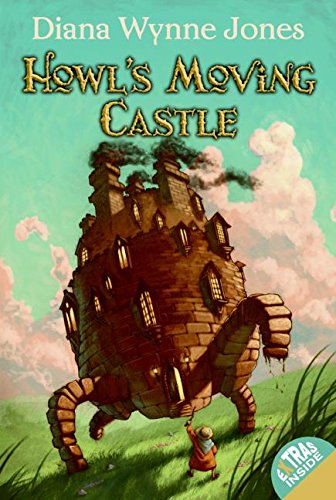
I have been a fan of the Studio Ghibli film Howl’s Moving Castle for a very long time. It has arguably the weakest storyline of any of the Ghibli movies that I love, really just meandering from plot point to plot point. But, it has a very compelling main character (Sophie), wonderful music, and the most beautiful hand-drawn art of any Ghibli film.
I’m trying to read more fiction, and especially shorter, more easily digestible works. I decided to give the original book that the the movie is based on a try. The book has much of the same character as the movie. There is a lot of spontaneity, and a general sense that anything is possible at any time. Many of the storylines are similar to the movie also (for example, the use of magic to seed a flower yard and then open a flower shop).
The book does have some significant changes though, the most pleasant of which is that Sophie also has magical powers (although they are latent, and only discovered late). Ultimately, though, I found the book to be just as meandering and purposeless as the novel from a plot perspective. The best example of this is the book kind of just ends, the climax having been reached and epilogue played out in a very small number of pages. It was still an enjoyable read, but I will likely not be reading the sequels in the book series.
Super Pumped: The Battle for Uber by Mike Isaac
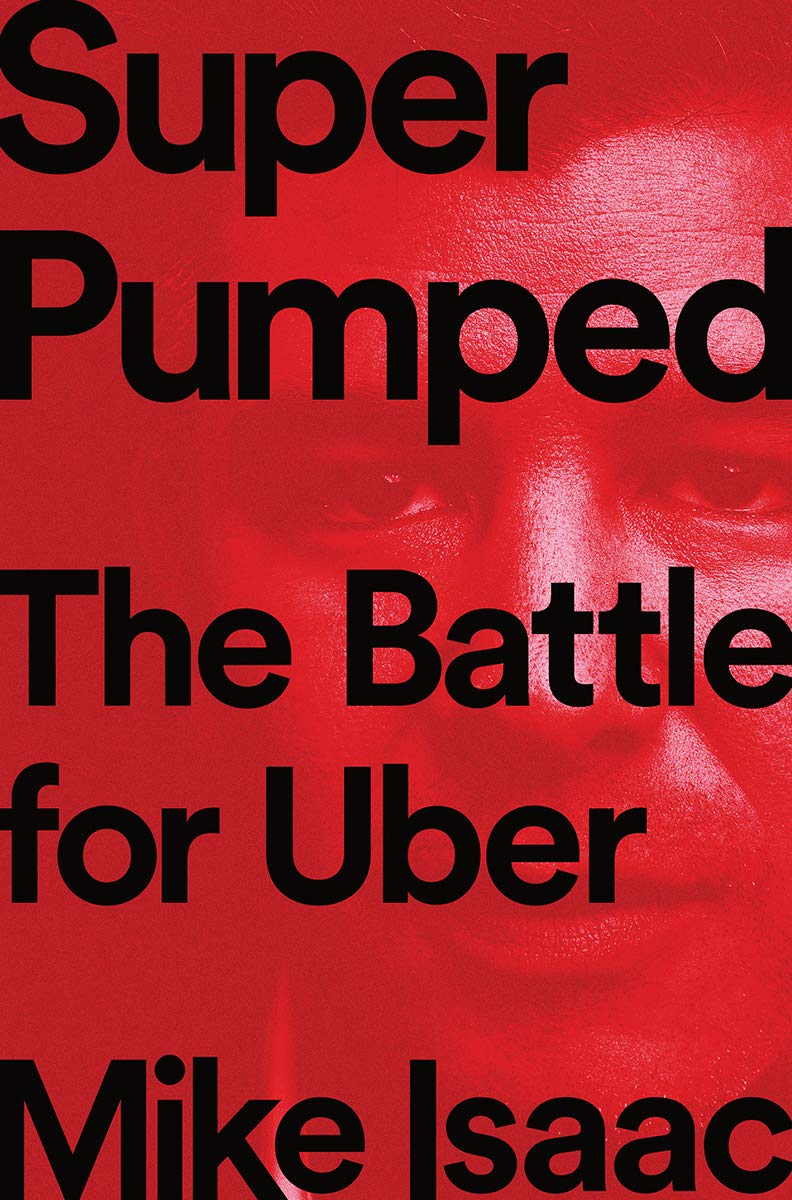
I had been wanting to read this book for a while and finally got around to it. For context, I interviewed with Uber (and received an offer) in the Spring of 2017, right around the time when Travis Kalanick was booted as CEO. I have always had a mixture of admiration and caution about Uber, and the interview process seemingly both of those things for me. I’m glad I ended up choosing Google over Uber.
This book is a fast read and a very entertaining read. It mostly tells the tale of Travis Kalanick, chronicling his early life and startups, and the early few years at Uber. It rises to a climax during that early 2017 period when Kalanick ended up getting removed from the company. Many of the stories in the book I had either read about in the press, or I could guess at. But some of them are truly wild.
The wildest one is the story of how Uber tried to get around Apple App Store rules by installing a geo fence within the Uber app that hard coded in the IP address ranges for Apple’s Cupertino campus. Never mind the underhanded business practice of trying to deliberately fool a technology partner. The craziest thing here is it’s such a stupid idea! It’s amazing Uber ever got anything done when decisions like this were getting made.
Why We're Polarized by Ezra Klein
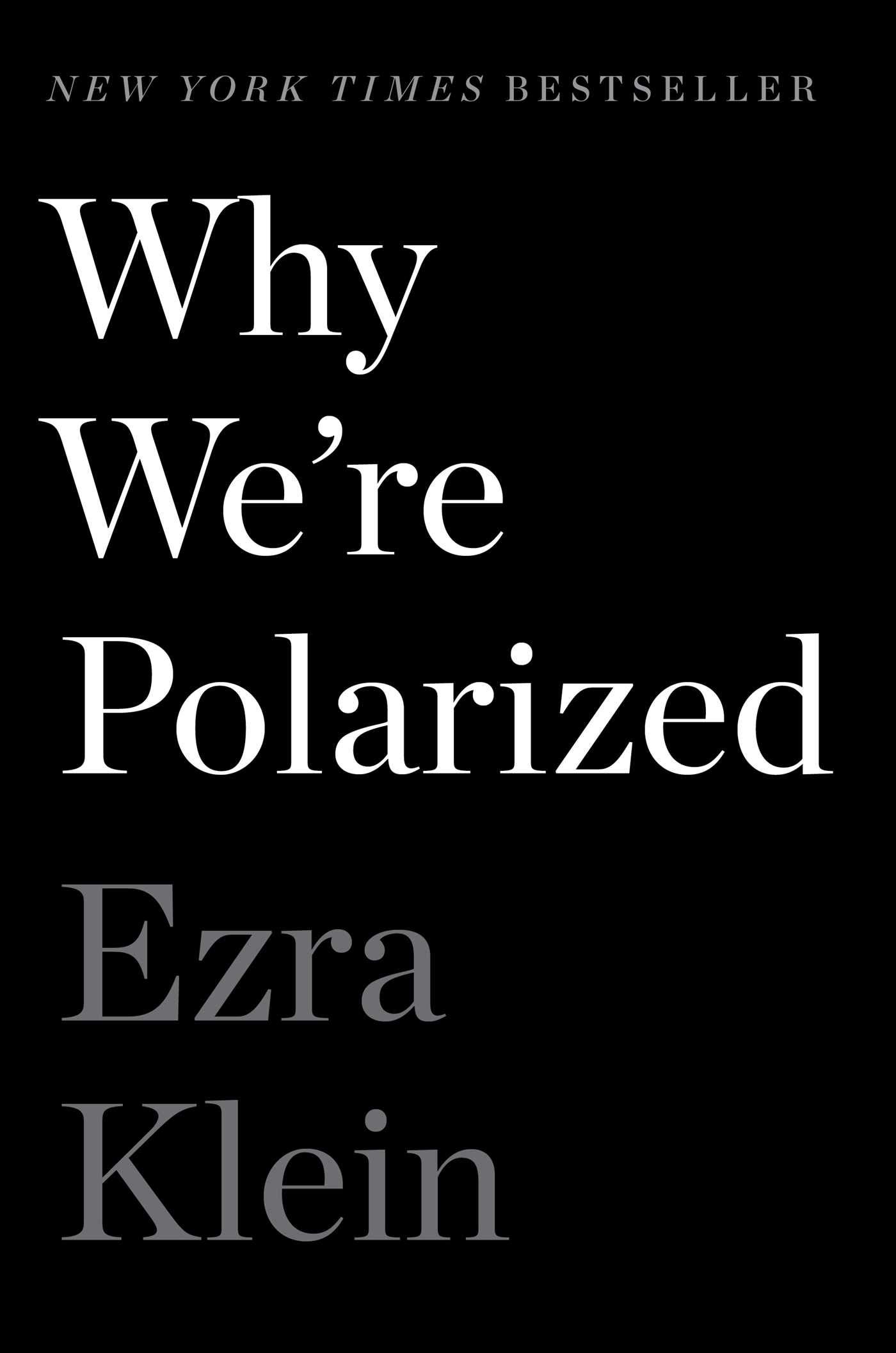
I didn’t want 2020 to pass without reading at least something about the current political environment. In many ways, 2020 seems like an inflection point in the history of the USA, where everything before it looks completely from everything that is to come.
This book has a very interesting tagline, literally from the book title, and I think Klein does a good job of exploring the subject. He gives a brief overview of the history of American politics and the 2-party system, emphasizing that for a long portion of the 20th century, the two parties were almost indistinguishable.
There are some interesting academic studies cited, such as those that seem to suggest that humans are naturally identity-based, even in situations where the “identity” is the loosest association possible. This association with identity naturally leads people into comfort areas, and the internet has succeeded in making it easier for everyone to find others with their same opinions.
Klein doesn’t offer any real solutions, but I think that’s because no easy solutions really exist. Instead, this book is a good read to at least understand the current climate, and the set of behavioral and political factors that made it happen.
Chasing Chopin by Annik LaFarge
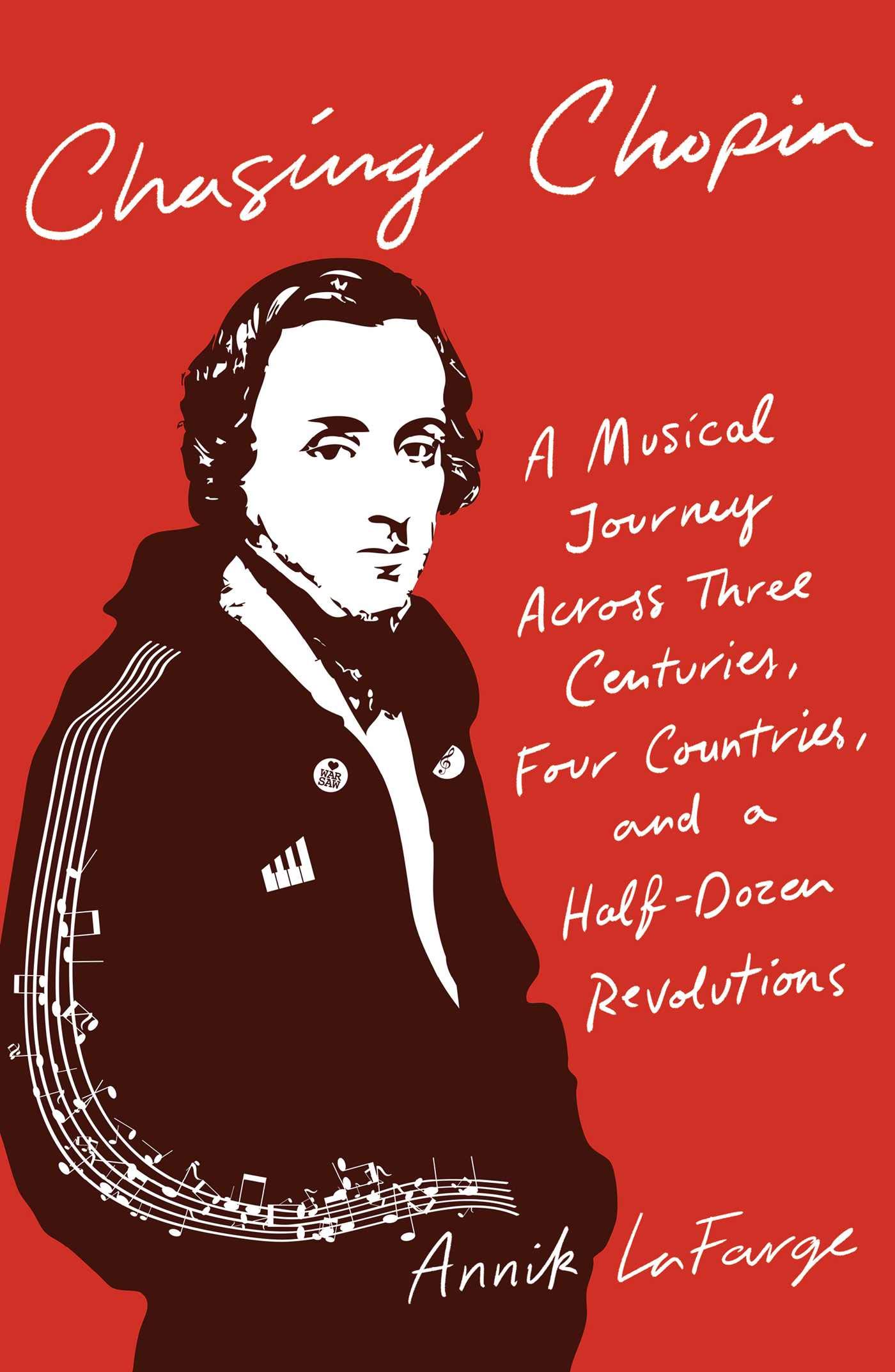
I heard about this book on the Sticky Notes podcast. Chopin is not a huge part of my musical life simply because I never played piano and Chopin hardly ever wrote any instruments besides piano. But of course, I have enjoyed listening to Chopin, particularly the Nocturnes. I didn’t know much about Chopin, so this book seemed like a good intro.
The book itself is hard to categorize. It’s ostensibly organized around Chopin’s Piano Sonata No. 2, the one that has the famous funeral march. LaFarge dives into various aspects of Chopin’s life, and concentrates on the parts that led to the creation of the funeral march.
Unfortunately, I ultimately found the book too shallow in any particular subject, and the mishmash of topics didn’t make up for the lack of depth. The book reads like a collection of long magazine articles. First LaFarge talks about pianos (since Chopin played on a particular type of piano). Then there is a discussion of Chopin’s teaching. Then she talks about Chopin and George Sand’s trip to Mallorca. It’s a esoteric list of subjects that ultimately don’t make me feel like I know Chopin or the Sonata any better. Chopin’s relationship with George Sand, a leading female writer in France, is very interesting. But even there, the depth is just lacking.
I did come out of this with a greater appreciation for Chopin, and maybe I’ll seek out a more formal biography in the future.
Ahsoka by E.K. Johnston
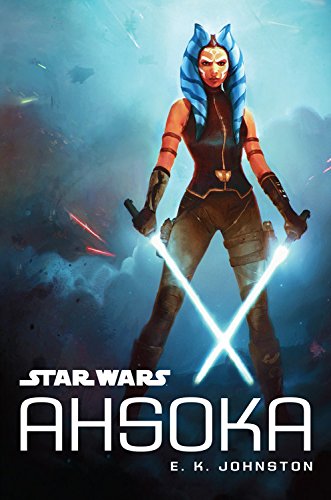
I watched the entire Star Wars Clone Wars and Star Wars Rebels series in 2020. They took a pretty long time, but with the quarantine, there was a little extra time for watching shows. Both shows are cartoons that ostensibly caters to a younger audience. But I was astonished at the highs of the storytelling in the shows, particularly as it relates to Ahsoka Tano, one of the main characters of both shows.
The story arc of Ahsoka Tano is as good or better than almost any other Star Wars character (really, rivaling only that of her master, Anakin Skywalker). Here is a character that is the symbolic ideal of the Jedi, but has made the explicit personal decision to reject the Jedi order.
This book by E.K. Johnston is a young adult novel that fills the gap from right after Ahsoka decides to leave the order. It explores her inner turmoil as well as some adventures she has in saving a small group of farmers. It was a quick but entertaining and satisfying read.
It feels good to know that the future of many of these characters (Ahsoka included) is in good hands with Dave Filoni and Disney. Already there are rumors that Ahsoka will appear in the live action show The Mandalorian. I can’t wait to see where her character goes next.
Tall Tales by Terry Pluto
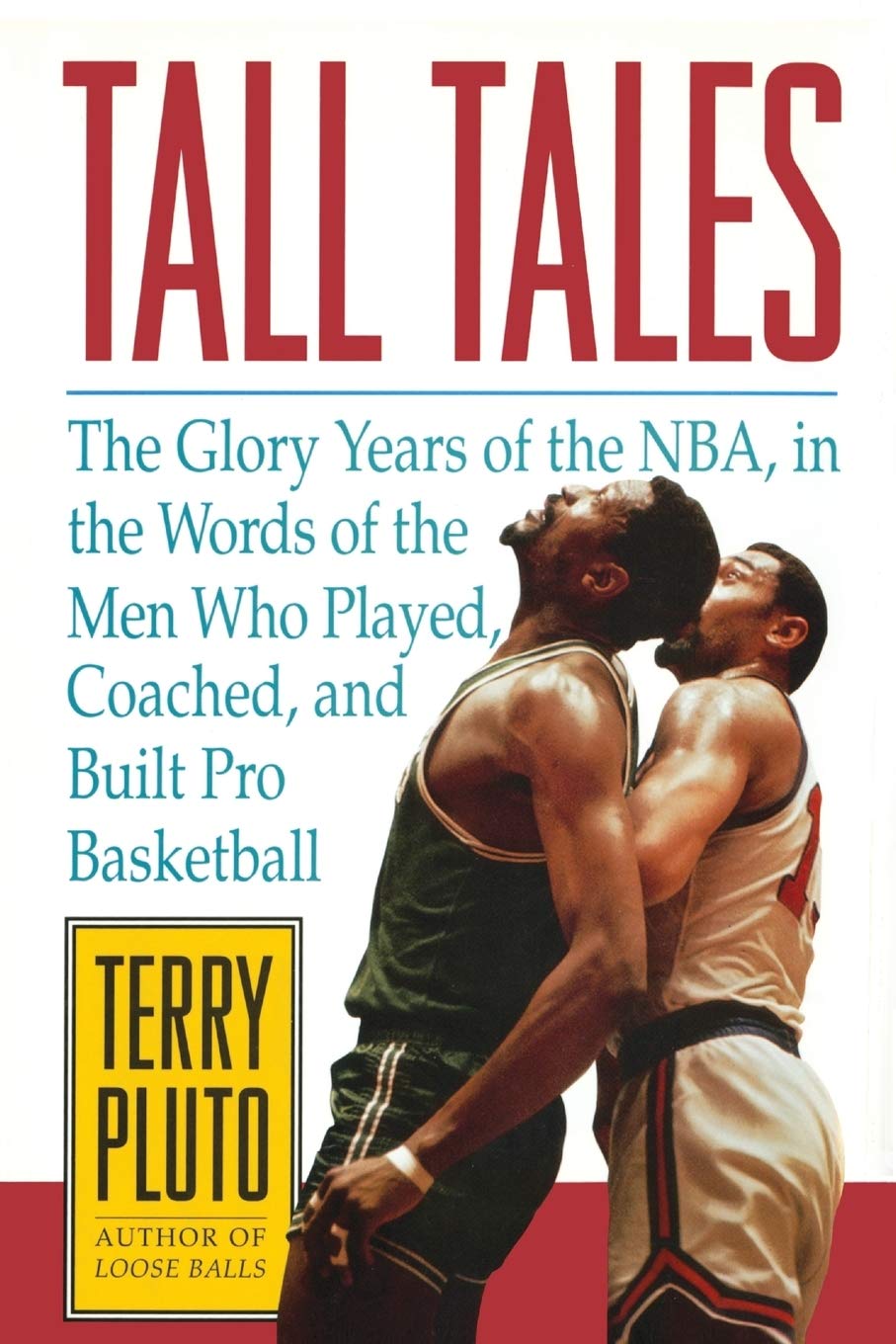
Terry Pluto is also the author of Loose Balls, the canonical oral history of the ABA. I had read Loose Balls a long time ago, when my love of the NBA was just developing. Terry Pluto captured the extremely colorful and seat of your pants nature of the ABA, where teams were created and folded, players ranged from the sublime (Dr. J and George Gervin) to the thoroughly uninteresting.
I still remember my favorite stories in the book relating to Marvin “Bad News” Barnes, a very gifted forward who didn’t have his head on straight. This article captures some of the Barnes stories, but my favorite by far is him missing the team flight, chartering his own private flight, showing up minutes before the game started with a bag full of hamburgers, and then dropping 44 in the game.
I decided to check out another oral history from Pluto, this one focused on the birth of the NBA and then the subsequent first decade in the 1960’s when Bill Russell and the Celtics dominated.
There are two major takeaways I got from this book - 1) it is absolutely crazy to think about how small the NBA was in the beginning and 2) there is no debate between Wilt and Russell (Russell is clearly the greater player).
First, the book describes the beginnings of the league, when players were literally playing for beer money. A common occurrence would be an entire team showing up at a bar after the game and closing it down. Players were hungover for games, and there was actual pushback from players when the league tried to curb some of this behavior. Even comparing the early days of the NBA with something like the esports leagues now, it feels like the esports leagues are better funded, better run, and have higher sights. Back in the day, really very few people would have predicted that the NBA (and the game of basketball) would become such a huge international business.
Second, the book goes in depth on both Wilt and Russell. It’s clear that Russell didn’t speak to Pluto whereas Wilt was very willing. But all of Wilt’s quotes make him sound like a sore loser, someone who is still chasing to re-litigate events from decades ago. The consensus the book arrives at (via several interviews with their peers and coaches/executives) is that Russell was the greater winner, someone who willed his team no matter the circumstance. Whereas Wilt was a better person, more active in the community, more willing to engage with teammates. But it also seems to make clear that Wilt’s driving force was primarily driven by self-interest, in that he constantly ended up trying to make himself look better. Whereas Russell won 11 titles in 13 years. Back in the day, there was probably more debate about who was the greater pioneer big man. But I think with the greater focus now on positive impact toward helping a team win, most NBA analysts seem to be coming to the conclusion that Russell’s defense was non-paralleled and was the major reason for the success those Celtics teams saw.
The Storm Before the Storm by Mike Duncan
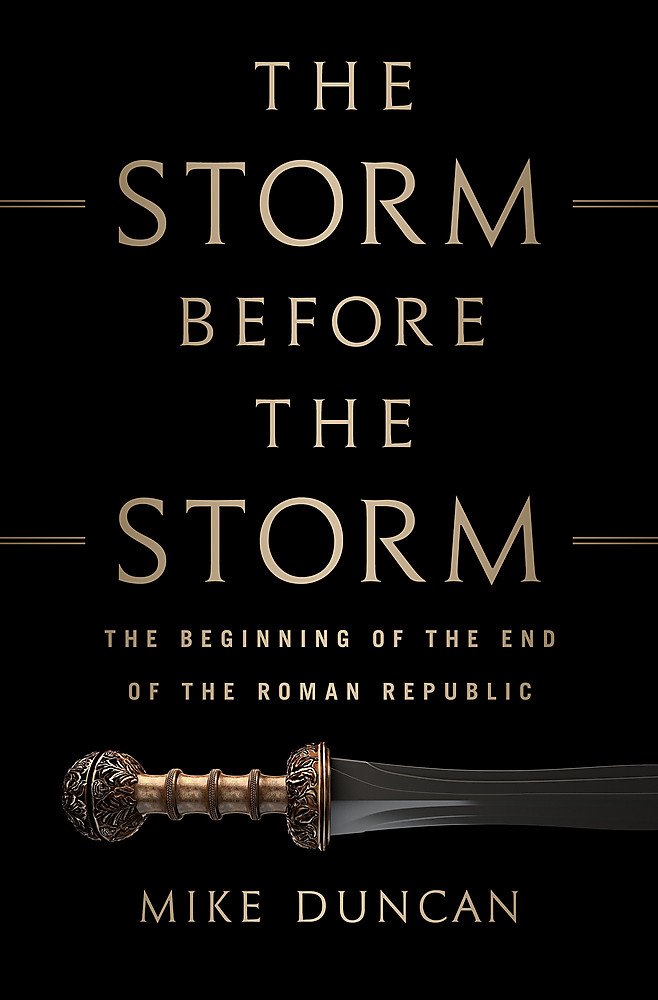
My thoughts on this book went long, so I captured them in a separate post.
Pistol: The Life of Pete Maravich by Mark Kriegel
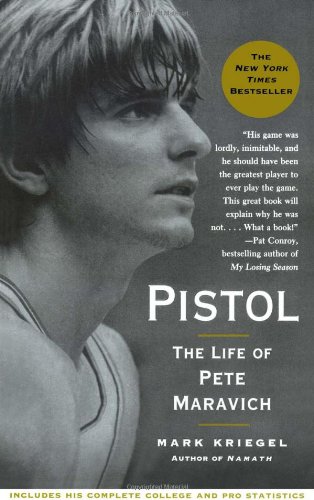
Pete Maravich is one of those names that NBA fans almost always hear of as a tall tale. He averaged 44 points per game in college, and he did it even before the 3 point line! He wrecked his knee, otherwise who knows how great he would have soared amongst the NBA legends! He was a white player that nevertheless was the fanciest dribbler and passer, maybe in basketball history!
Despite my love for the NBA, I had never really done a deep dive on Maravich. He is celebrated by a certain generation of people (much older than me), and I always assumed it was sort of a “you had to be there” experience. Reading this biography of him revealed two major new learnings for me. First, the story of Pete Maravich really is the story of Pete and his father, Press. Second, Pete was not the special NBA player that legend makes him out to be, as in even if the injuries didn’t end his career early, he would not have reached any top-tier legend status (i.e. the top 15 of all time, with legends like Bird, West, and Dr. J).
First, his father Press really is the most interesting facet of Pete the player. Press was part of the original wave of professional basketball (before it was integrated). He was a decent player but an obsessive thinker of the game. He became a great coach, someone that had radical ideas about fast breaks, spacing, and ball movement. Really, his coaching style is Mike D’Antoni decades before the Seven Seconds or Less Suns.
But the most fascinating thing about Press is his deliberately huge blind spot when it came to Pete. Press gave Pete all the proper training, including grueling dribbling skills that would bloody young Pete’s hands. Pete is really the young Mozart, possessing both natural talent and given the right nurturing of it from someone who has the stature and abiliity to develop the talent. The critical difference between Mozart and Maravich though is that music and composition can be achieved mostly singularly, with one person alone creating something. Basketball cannot and has never been about a single person.
Press enabled Pete by making all of his teams a one-man show. The result of this was incredible production (hence the 44 points per game in college) but never any actual basketball success. Pete didn’t win at the high school, college, or NBA level. In fact, it’s not even about championships, he rarely ever played on a team that was even though of as a potential challenger to the championship favorites. Most NBA players have a history of winning, simply because their talent is off the charts. The players who became true NBA legends almost never went anywhere without winning. Michael Jordan made the title-winning shot at North Carolina as a freshman. Larry Bird and Magic Johnson met in the Final Four. Their winning ways were not accidents: they played in a way that not only accentuated their individual talents, but collectively improved the play of the team.
Pistol Pete did not ever play this style. He had difficulty sacrificing his playing style in order to empower his teammates. But the true tragedy is that this is not his fault. It is almost entirely the fault of his father, who is the one of the few coaches that truly understood the value of ball movement, spacing, and playing as a five-man unit. Press was the ultimate team coach, except when his son was on the team.
In the end, it became clear for me that Pete belongs to the small group of players that really are incredibly gifted and entertaining, but who are almost playing a different game from his teammates. Other similar players in this vein include Allen Iverson and Russell Westbrook. Both are players that are highly polarized, with passionate fans and equally passionate detractors. What they have in common is that they would have succeeded but for the fact that basketball is a team game. If basketball was an individual sport, where someone does some dribbling, makes some shots and layups, and runs around the court, and then judges give a score (like in Figure Skating), there is no doubt all three of these players would have several championships. But as it is, there is not a single title between them, and (given the trajectory of Westbrook), it seems very likely to end that way for all three of them.
The Trial by Franz Kafka
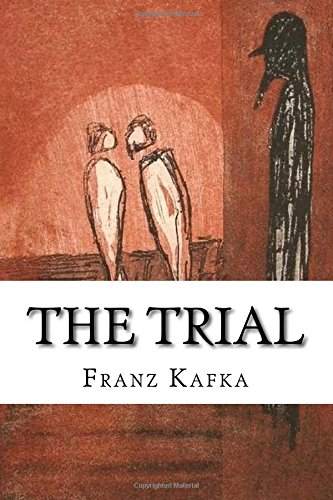
Over Thanksgiving break, we stayed at an Airbnb that had a wonderful library of books. Given we had a few days off, I took it as a chance to try something I wouldn’t normally read. Kafka is one of those authors that seemed to live more as a legend than as a real writer. I always assumed he was more of a philosopher, given the wide use of the term “Kafka-esque”. I picked up The Trial because it looked compact, and a quick summary on Wikipedia noted as one of Kafka’s major notable works.
Full disclosure: I did not completely finish the book. I read through a little more than halfway, and then skipped to the last chapter. The novel has a very uniform feeling. I did not feel I was getting much from actually reading additional chapters. As a reader, it is a bit like being gradually crushed by something heavy, or being in a room where the oxygen level is just a little lower than normal. It is a dread, not exactly depressing, but definitely not comfortable.
The premise of the novel is the protagonist is arreseted for a crime without ever hearing who is charging him or what the crime is. It is a study in bureaucracy (through the court, lawyers, judges, etc.) and red tape, as well as the scary proposition of a faceless entity akin to a secret police. It is very similar in tone to 1984, although it is not explicitly political the way 1984 is. Instead, I think The Trial can be interpreted more from the lens of personal guilt. The narrator most likely has committed some sin, and he is mentally walking himself through the steps of reckoning with the sin and eventually atoning for it with punishment. The last chapter is really quite grueling to read, with the execution of the protagonist in a back alley via a butcher knife to the heart.
Reading this also served as an opportunity to learn a bit more about the author, and there I really was surprised. Kafka burned 90% of his works and was not at all celebrated during his life. It is only after he died, when the executor of his will defied his instruction to burn all the work, that his major works were published and gained notoriety. I think what people enjoy about Kafka, other than the distinct atmosphere that he creates, is the open-ended moral interpretation possibilities. I probably won’t read another Kafka work, but I’m glad I got to take a few days detour with this one.
Erik Satie (Critical Lives) by Mary Davis
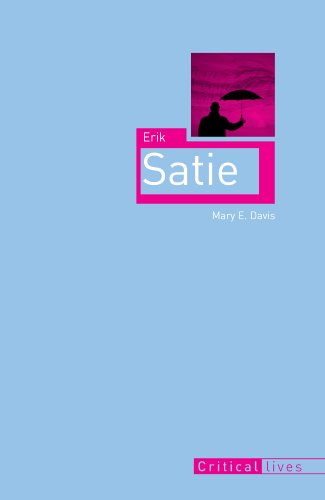
I discovered Erik Satie relatively late in my musical life. I think I was always aware of the Gymnopédies, and their simplicity, but it’s only recently that I have started to truly enjoy listening to Satie’s music. The simplicity is particularly good for how I listen to music now, mostly in the background, mostly as a small distraction while working.
I realized that I actually knew very little about Satie, so I decided to read this short biography. Satie was very eccentric, wearing the same outfit for years at a time, and then suddenly changing course, and then wearing another outfit for decades at a time. His time was later than I would have guess - he was more like a contemporary of Ravel, but he did overlap with Debussy (and indeed had a very close relationship with him) early in Satie’s career.
Satie started his composing career in Montmartre in the Moulin Rouge-style bordellos and cafes, the peak of fin de siècle Paris. Interestingly, he was one of the first musical composers to showcase his music in unconventional settings, oftentimes along a piece of art. While none of his other works reached the height of popularity of the Gymnopédies, the through line of eccentricity and simplicity does cut through.
Y: The Last Man by Brian K. Vaughan and Pia Guerra
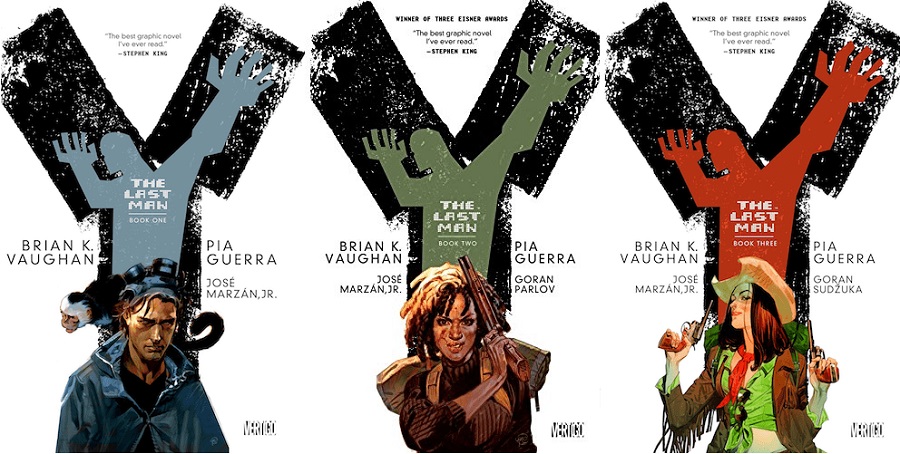
I really enjoyed reading Brian K. Vaughan’s still uncomplete Saga, and Y: The Last Man is his second most well known work. The concept is very interesting: a plague has struck the Earth, and all men perish instantly, with the exception of the protagonist male character.
Like Saga, Y has very rich storylines, with fully developed characters, good humor, and thought-provoking storylines. I enjoyed this series very much, and I’m looking forward to reliving it again when the recently announced TV series premieres.
comments powered by Disqus